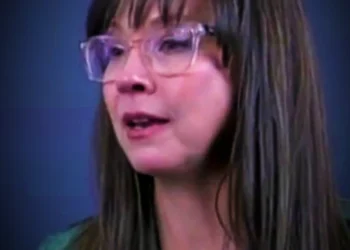By Cris Alarcon, InEDC Writer. (Aug 9, 2025)
EL DORADO HILLS, Calif. — The U.S. public school system was built in a different century for a different workforce, and local educators and experts say it is showing the strain as students face academic declines and a national mental-health emergency that schools were never designed to handle. National testing results and federal health surveys, they warn, point to systemic gaps that local districts and community organizations here in El Dorado County are beginning to address — but many advocates say deeper structural change is needed. Nations Report CardCDC
“The public school system in America was never designed for the world we live in now,”
wrote Justin MacDonald, head of The Academy at District Church in El Dorado Hills, in a recent opinion piece arguing the system prizes conformity over discovery.
“We need to stop viewing school as a place to stuff heads with facts. It should be a place where students can discover who they are and why they matter.”
What the numbers say
Nationally, long-term NAEP (the Nation’s Report Card) assessments show reading and math scores for 13-year-olds have slipped to levels not seen in decades — declines educators tie to pandemic disruptions, chronic absenteeism and widening opportunity gaps. The long-term trend assessment recorded multi-point drops compared with pre-pandemic baselines and larger declines compared with a decade earlier. Nations Report Card
At the same time, the Centers for Disease Control and Prevention reports alarming mental-health trends: about four in 10 high school students said they experienced persistent feelings of sadness or hopelessness in the past year, and one in five seriously considered attempting suicide, according to the 2023 Youth Risk Behavior Survey. Those figures, officials say, place new and urgent expectations on schools to serve as mental-health front lines. CDC+1
Local response and capacity
Locally, the El Dorado County Office of Education has bolstered student support services, citing mental-health and wellness as a top priority and marshaling programs designed to expand counseling, crisis response and social-emotional learning across district campuses. County Superintendent Dr. Ed Manansala has led efforts to expand partnerships and professional development aimed at identifying and supporting students in crisis. edcoe.org+1
But those programs — while essential — address symptoms more than root causes, according to MacDonald and national policy analysts. MacDonald says standard measures of success, chiefly standardized tests, fail to capture skills like resilience, identity formation and the ability to navigate adult life.
“When we reduce kids to test scores, we reduce their future potential,” he wrote.
What reformers and think tanks are saying
A growing chorus of education scholars suggests the next phase must move beyond incremental “reform” and toward a broader “rethinking” of schooling — preserving strong academics while also reimagining metrics, school culture and teacher roles. The American Enterprise Institute has urged policymakers and school leaders to use pandemic disruption as an opening to reconceive how schools work and what success looks like. American Enterprise Institute
Other research organizations emphasize that learning happens best in safe, supportive communities rather than rigid, industrial models of schooling. Building a school culture that explicitly supports students’ social and emotional needs — and trains staff to sustain that environment — is increasingly presented as central to improving both well-being and achievement. The Thomas B. Fordham Institute
Practical steps — locally and statewide
MacDonald offers three practical starting points that align with measures being piloted in some districts:
• Reimagine metrics: Supplement state assessments with indicators of creativity, collaboration and character so that school success is measured in broader terms than short, high-stakes tests.
• One-on-one coaching: Scale individualized advising or coaching programs that help students identify strengths, career pathways and coping strategies outside the classroom.
• Change the culture: Invest in staff training and schoolwide routines that teach emotional regulation, conflict resolution and civic skills as core parts of the day.
Local districts in El Dorado County already have pieces of this work underway — from countywide wellness teams to expanded counseling capacity — but administrators say sustained funding, policy flexibility and community buy-in are required to scale pilot projects into lasting change. edcoe.org
Who stands to gain — and who to watch
Stakeholders include students and families, local districts (including El Dorado Union High School District), county education leaders, faith-based educational programs such as The Academy at District Church, and state policymakers who control accountability rules and funding. Private and nonprofit partners — from mental-health providers to after-school programs — can also expand capacity if districts ease regulatory barriers and prioritize support services in budgets.
A path forward will likely require a blend of local innovation and state-level policy shifts: flexible accountability models, targeted grants for coaching and mental-health services, and teacher preparation that blends academic expertise with social-emotional skill building.
— — —
For now, MacDonald’s message is simple and familiar: schools must stop treating children principally as vessels for tested content and start preparing them as people for life’s complexity.
“Rethinking education doesn’t start with the next round of policy updates,”
he wrote.
“When students know they are loved and capable, both they and their educators can begin to remove systemic dysfunction.”
Reporting note: National testing and health statistics cited above are from the National Assessment of Educational Progress and the Centers for Disease Control and Prevention. Local program information was drawn from the El Dorado County Office of Education.
—
By Justin MacDonald, Guest Columnist, the head of The Academy at District Church in El Dorado Hill. (Aug 9, 2025)
The American public school system was never built for the world our children live in today. It was designed over a century ago for an economy that needed factory workers — where following orders mattered more than asking questions, and uniformity was the gold standard. Back then, preparing students for repetitive, predictable work made sense. But that world is gone.
Our children — Gen Z and Gen Alpha — aren’t headed to assembly lines. They are stepping into a world of constant change, rapid technological shifts, and unprecedented mental-health challenges. The cracks in our educational foundation have become impossible to ignore.
The latest National Assessment of Educational Progress shows reading and math scores among 13-year-olds at their lowest levels in decades. At the same time, the CDC reports that nearly 40% of high school students feel persistent sadness or hopelessness — a staggering rise over the past decade. These are not small, isolated issues. They are symptoms of a system struggling to prepare young people for real life.
And yet, we still measure success primarily through standardized tests. We rarely ask if a student can manage stress, think critically, or build healthy relationships. When we reduce kids to test scores, we reduce their potential — and in doing so, we shortchange their futures.
In El Dorado County, we have an opportunity to do better. We can start by reimagining the role of education altogether. That means changing our metrics to value creativity, collaboration, and character alongside academic achievement. It means ensuring every student has access to one-on-one coaching that helps them see their value beyond grades. And it means addressing school culture so that emotional resilience and confidence are as important as test scores.
Reform that tweaks standards or shuffles curriculum around the edges won’t cut it. We must remember that schools are not factories; they should be communities. Communities nurture, challenge, and shape character. Factories do not.
Rethinking education isn’t about the next policy update from Sacramento or Washington. It starts with remembering why we educate in the first place. When students know they are loved and capable, real learning can happen. When we commit to building schools that develop whole people — not just test-takers — we will finally begin to fix what’s broken.
Justin MacDonald is the head of The Academy at District Church in El Dorado Hills. The views expressed here are his own.










